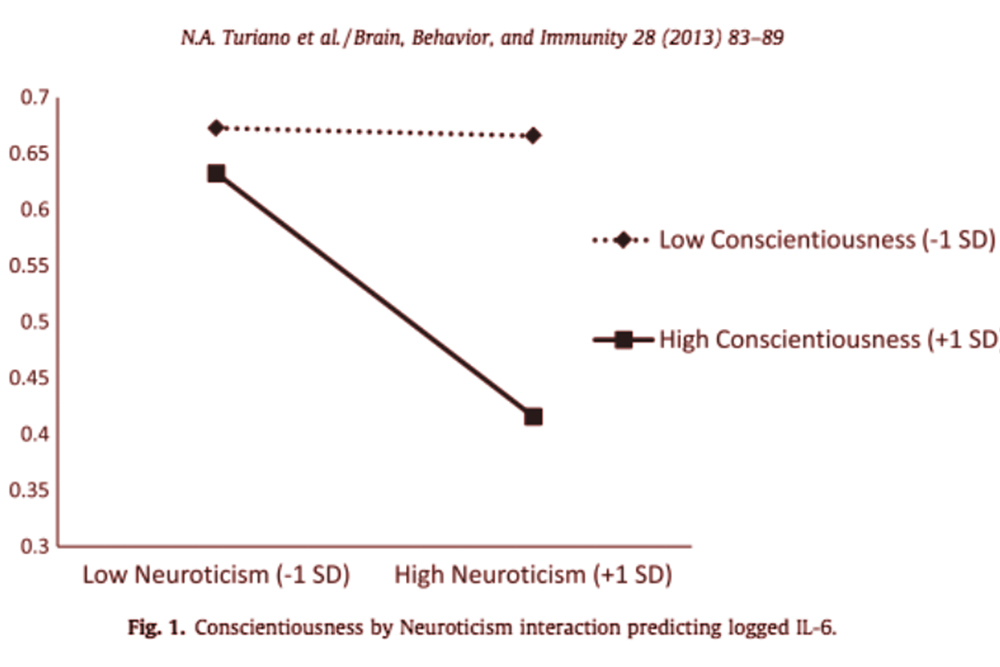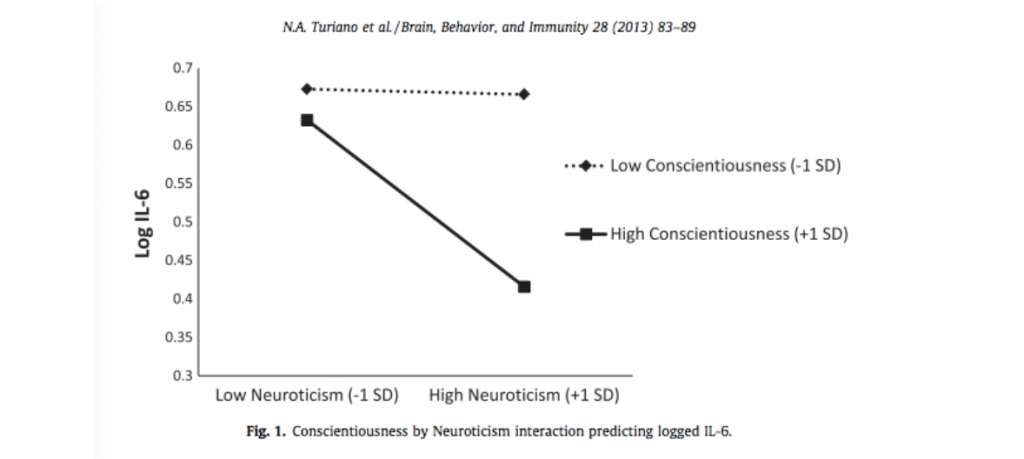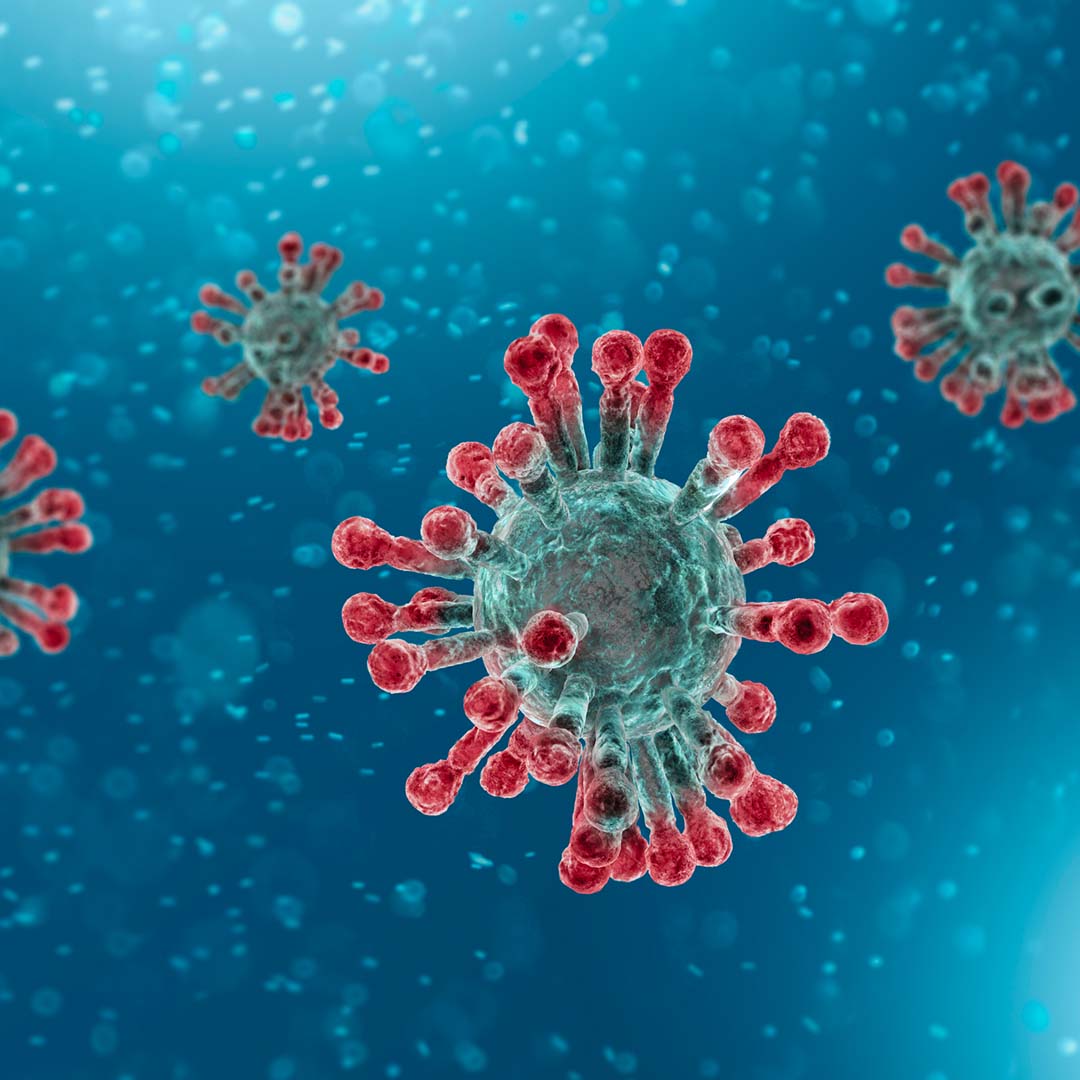A Healthy Dose of Neuroticism

Catherine O’Brien
A Healthy Dose of Neuroticism
The development of the 5-factor theory of personality, often deemed “The Big Five”, dates back almost 30 years. The theory, as discussed in Digman’s review of the model, holds that there are five major dimensions used to describe human personality- Openness, Conscientiousness, Agreeableness, Extraversion and Neuroticism. Within each of the dimensions are a series of traits that further describe the factor.
For example, conscientiousness may include preparedness, organization, and attention to detail. Neuroticism would include things like propensity to worry, heightened stress, and anxiety. One can speculate where scoring high is “good” and where scoring high is “bad”. For example, most people would agree that low scores for agreeableness is a more negative personality trait than a positive one. The same could be said for neuroticism where scoring high may be considered less than favorable. Research suggests, however, that when combined with another key personality factor, neuroticism may not be so negative after all.
Interleukin-6 and Why It’s Important
In order to appreciate the research, a small understanding of interleukin-6 is necessary. According to NCBI Interleukin-6 is a protein-coding gene that plays a role in inflammation and maturation of B cells (NCBI).
Related Article: Exercise and “Inflammaging”
“The protein is primarily produced at sites of acute and chronic inflammation, where it is secreted into the serum and induces a transcriptional inflammatory response through interleukin 6 receptor, alpha”. (NCBI, Interleukin 6)
While interleukin 6 plays an important role in immune response, overexpression can lead to disease. Previous research has shown associations between personality type and representation of interleukin 6 such that high levels of neuroticism were associated with increased levels of interleukin 6. According to Turiano et al. one of the main reasons explaining the association between personality and inflammation involves health behaviors. The aim of the study was to observe whether any of the Big 5 personality traits predicted levels of interleukin 6 in adults, to identify a potential interaction between neuroticism and conscientiousness, and finally, to examine whether health factors could explain personality-inflammation associations.
Participants took a self-administered measure of the Big 5 personality factors to determine their trait list. At the next visit, fasted blood samples were collected from each participant. Next, participants were to indicate their health behaviors including whether they smoked cigarettes regularly and their average number of alcoholic drinks consumed on days in which they drank. Finally, measurements of height and weight and Body Mass Index (BMI) were obtained.
Related Article: A 360 Look At How Exercise Affects Brain Function
Interleukin 6 and Neuroticism
In line with previous study findings, the results showed higher levels of circulating interleukin 6 to be associated with high scores for Neuroticism. Interestingly, however, a significant interaction of Neuroticism * Conscientiousness emerged such that those with high levels of Neuroticism and high levels of Conscientiousness had lower circulating interleukin 6 levels than those with other combinations of these two personality factors (see figure below). Once again, Turiano et al. pointed to the health factors as influencers of this interaction. High neuroticism, when combined with high conscientiousness, was associated with more positive health behaviors which in turn promoted lower levels of interleukin 6. Results showed that persons high in neuroticism and high in conscientiousness had lower average BMI and lower levels of chronic disease.
Conclusions
As someone who tends to lean in the direction of neuroticism, I find this research to be especially interesting and helpful in understanding my own behavior and habits. Personality tests have indeed indicated that I am a high scorer for neuroticism and conscientiousness. This gives me hope that my worrying and sometimes above-average stress levels aren’t all bad. This information also arms me with the assurance that, under certain circumstances, a healthy dose of neuroticism can be beneficial.
References
Turiano, N., Mroczek, D., Moynihan, J., Chapman, B. (2013) Personality Traits and interleukin-6: Evidence for “healthy Neuroticism” in US population sample. Brain, Behavior, and Immunity 28, 83-89.
Digman, J. (1990) Personality Structure: Emergence of the five-factor model. Annual Review Psychology, 41, 417-440.
(2017, January 1). IL6 Interleukin 6 (humans). Retrieved January 13, 2017, from https://www.ncbi.nlm.nih.gov/gene/3569
You Might Like:
















